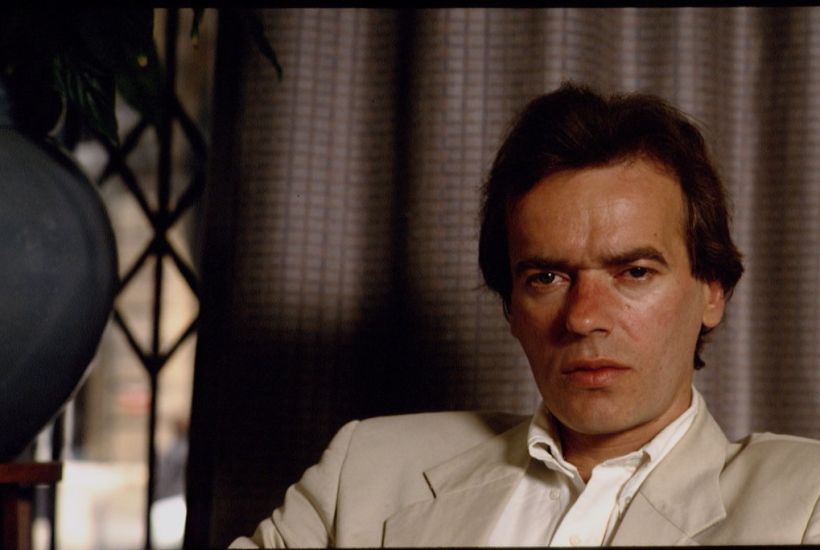Over the next few days, people will be reaching for certain set phrases about Martin Amis. That he was ‘era-defining’ (though he defined more than one era); that he was ‘genre-defying’ (he defied more than one genre); that he was an ‘enfant terrible’ (it will be wryly noted that he remained an enfant terrible, somehow, into his eighth decade). It’s poignant, I think, that a writer who vigilantly waged the career-long battle he called ‘the war against cliché’ will go to his grave heaped with the garlands of the old enemy.
Still, he deserves the content of those tributes if not their form. And it’s not much of a surprise that nobody can write as well about Martin Amis as, in life, he could write about anything else. He wrote a couple, maybe even a small handful, of the best novels in English of the last half century; and he was at least as good a critic and memoirist and essayist. Some people, and I’m among them, think the non-fiction is even better than the novels. His thing, his big thing, was sentences.
When he was on song, nobody was as inventive, as surprising, or as damned funny at the level of the sentence as Amis
He went along with Anthony Burgess’s distinction between ‘A-writers’, who were storytellers, and ‘B-writers’, who were users of language. He wore his B-writer badge with pride. ‘if the prose isn’t there,’ he wrote drily, ‘then you’re reduced to what are merely secondary interests, like story, plot, characterisation, psychological insight and form.’
The prose was always, always there. Once, looking back on the defects of one of his own early novels, he noted with a wondering satisfaction that the writing, even then, was ‘terribly alive’. When he was on song, nobody was as inventive, as surprising, or as damned funny at the level of the sentence as Amis. And off song? Well, the same pretty much holds.
Also, which accounts of him that stress the sarcasm, the prickliness and the ego frequently omit, he was (at least in my experience, and I know in that of others) a mensch. He was the first writer I ever chaired on stage. I had been in awe of him since I was a teen. I said yes to the invitation as a dare to myself. I was terrified; but I reasoned that if I could get through interviewing Martin Amis on stage at the Royal Festival Hall, I’d never be frightened of doing a live event ever again.
Perhaps, as I made nervous small talk with him in the green room, he noticed a certain salmony tinge to my features. ‘Have you done this sort of thing much before?’ he asked. ‘I’ll be honest, Mr Amis: this is the first time.’ He made a noise. Something like: ‘Hrm.’ We went on. On stage, he took command of the show, answering my gauche questions in long, fluent, witty paragraphs studded with epigrams. It was an act of great generosity and I have ever since felt I owed him one.
There will be a lot to be said about him over the next few days, weeks and years – as a writer and a thinker and a man. None of us will say it as well and as wittily as he would; and that’s the only part of the scorecard that, I think, would have mattered to him. The rest, you could say, is merely secondary interests. RIP.
Got something to add? Join the discussion and comment below.
Get 10 issues for just $10
Subscribe to The Spectator Australia today for the next 10 magazine issues, plus full online access, for just $10.





















Comments
Don't miss out
Join the conversation with other Spectator Australia readers. Subscribe to leave a comment.
SUBSCRIBEAlready a subscriber? Log in